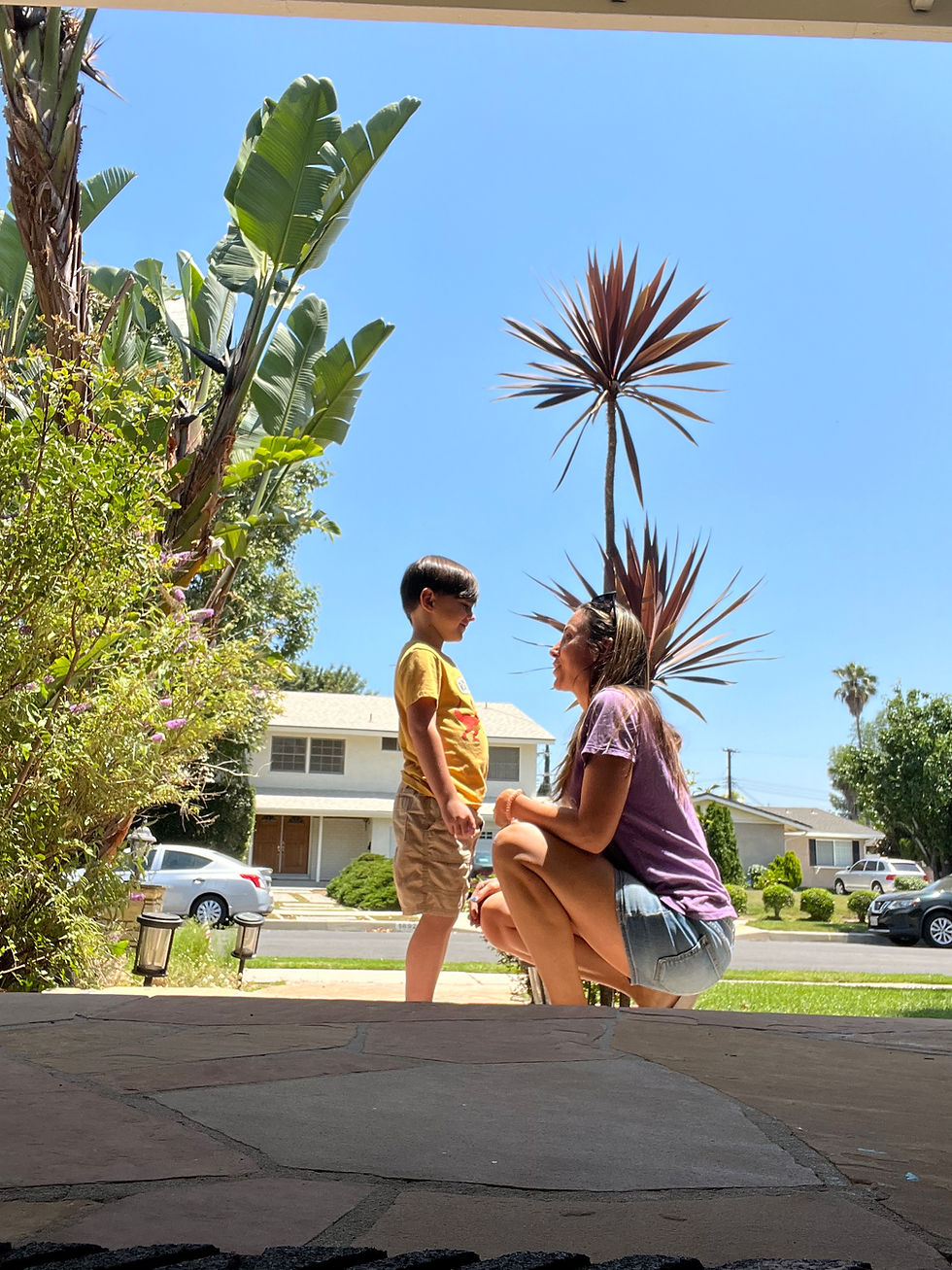3 WAYS PARENTS CAN HELP THEIR CHILD FEEL VALUED & HEARD
- Stephanie Heisler
- Jul 12, 2023
- 3 min read

After being a camp counselor and teacher for a decade before having my children, these useful tips helped me along my journey and continue to help me with my kiddos.
As I’ve mentioned before, I have three hilarious, adorable, rambunctious boys whom I affectionately call my "Hooligans". That being said, when they are in the middle of something or dealing with an emotionally charged situation it is very hard for them to listen. In these situations I want them to hear me out so I can support them in any way they need, but more importantly, I want THEM to feel HEARD by me.
I want to share with you the three ways that I use to help my children (and any child I am talking to) feel SEEN, VALUED, and HEARD.
First and foremost, I get down to their level. What does this mean? If the child is not tall enough to look you straight in the eye, you adjust your height to meet their eyes. For my youngest son that usually means I take a knee, and for my middle son I’m crouching a little bit just so my eyes meet his. Taking away this height difference can help the child feel better about whatever you have to tell them because you’re not towering over them or looking down at them while you’re speaking to them. They feel connected to you and not bombarded by you.
Number two on my list : If you are wearing sunglasses or anything that darkly covers your eyes from a child being able to see your eyes while you are speaking to them- REMOVE THEM IMMEDIATELY. A key reason behind this is as the saying goes, "the eyes are the window to the soul". If they can’t see your eyes, they don’t know the true emotion of what you’re trying to tell them. So much is told with our eyes when we are looking at somebody and talking to them.
My final tip: if you are dealing with a situation that requires some disciplinary action or mediation- when you come into the area where everything’s happening do a few things first :
Look around and assess all of the children involved and make sure you make eye contact with each of them when you ask this question- " What’s going on?" Keep your tone calm and collected. You’re simply asking a question. You’re not accusing anybody of anything, you’re just asking what’s happening so it’s open-ended and up to them to tell you what’s going on. Then approach each person involved to tell their side of the story calmly without the others interrupting. Let all the children involved know that you want to hear what this person has to say about what happened. Then you will come talk to each of them to tell you about the situation in their own words. This way it gives you time to gather all sides of the story to help work together to find a solution. If this situation is an emergency with injuries or multiple children crying these steps are escalated to fit the urgency of the events that took place. In these instances, remaining calm will be very difficult. Take into account how scared the children might feel when encountering something a little bit more serious and recognize that you are always doing the best that you can given the circumstances. As long as you help everyone feel safe as you de-escalate the situation you are moving in the right direction.
At the end of the day, children all want three simple things from anyone they encounter( but especially from their parents): they want to feel SEEN, VALUED, and HEARD.

















Comments